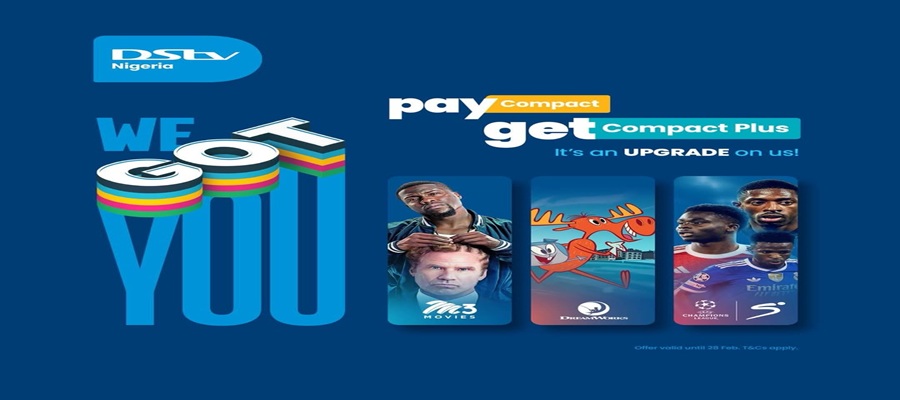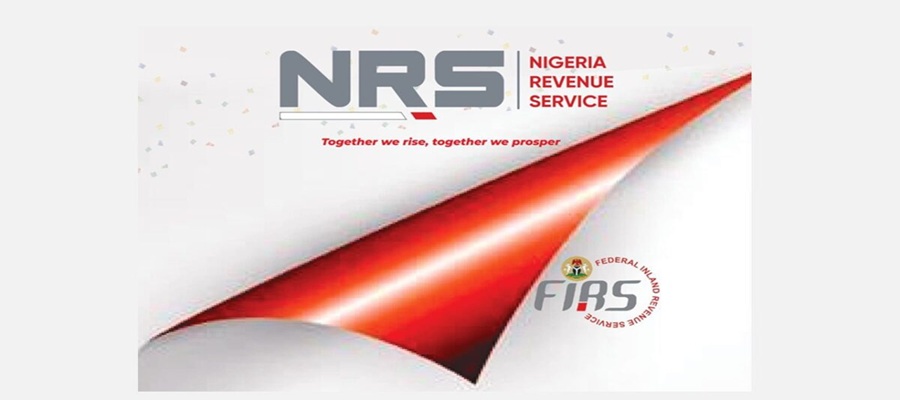Broadcasting
Filmhouse Cinemas Launches Online Ticket Booking Website

There are few things more annoying than getting to the cinemas hoping to see the latest blockbuster only to find out that the tickets to the movies have sold out.
The good news as far as Filmhouse Cinemas is concerned is that such days are set to be a thing of the past.
Today, it is with great pleasure that the management of Filmhouse announce the relaunch of its website complete with an online ticket booking portal. What this means is that guests now have the opportunity to buy movie tickets online from the comfort of their homes ahead of a visit to the cinema.
To the delight of most movie lovers nationwide, this launch must be coming at just the right time. With highly sought after movies such as Transporter Refuelled, Maze Runner: The Scorch Trials and more currently showing at the cinema, this presents an attractive opportunity to try out booking a ticket online as tickets for these movies are selling out thick and fast.
Filmhouse cinemas, as always, has been the preferred destination for movie goers due to its impeccable cinematic experience, constant customer centric endeavours and pace setting industry initiatives.
The launch of its online ticket booking website is further confirmation to a fact we have known all along; Filmhouse cinemas is simply the best in the business.
Mr Kene Mkparu, CEO/MD Filmhouse Cinemas stated, ‘At Filmhouse cinemas, we take two things very seriously, the experience and the convenience. With the launch of our online ticket booking website, we are thrilled to have once again answered the call of our loving guests. I would implore our guests to take up the convenience of booking tickets online as they make plans to see their favorite movies’
To celebrate this awesome launch, Filmhouse is giving you the chance to win free tickets, internet data , digital cameras and the remarkable Infinix Hot 2!
Simply follow Filmhouse cinemas on Facebook and answer the simple movie trivia questions and you could just be a winner! Be sure to follow Filmhouse Cinemas as winners will be announced on Facebook.
Broadcasting
DStv Offers Instant Package Upgrade for Customers from January to February

DStv has launched a new campaign tagged “We Got You”, aimed at giving customers more entertainment value at the start of the year without additional cost.

DStv
The campaign, which runs from January 1 to February 28, 2026, allows subscribers who pay for their current package in full to enjoy an automatic upgrade to the next DStv package.
The initiative is designed to ease the pressure that often comes with January, a period marked by school resumption, tighter budgets and increased household demands.
Through the offer, DStv is rewarding customer loyalty by unlocking more channels, stories, sports, children’s content, local productions and international programmes at no extra charge.
Speaking on the campaign, Tope Oshunkeye, Executive Head of Marketing, West Africa, MultiChoice, said, “We want our customers to step into the year feeling valued.
“When you buy your package, we upgrade you because you deserve more. This is our way of bringing extra excitement, choice and convenience into your home.”
According to DStv, the offer is open to existing subscribers who remain active during the promotion period, customers who reconnect their decoders, and new subscribers who join between January 1 and February 28.
Under the offer, subscribers who pay for DStv Yanga will be upgraded to DStv Confam, Confam customers will receive DStv Compact, Compact subscribers will be upgraded to Compact Plus, while Compact Plus customers will enjoy access to DStv Premium.
The upgrade applies only to decoder viewing, and subscribers will revert to their original packages at the end of the promotion period.
Broadcasting
FIRS Transforms into NRS as Nigeria Ushers in New Tax Era

Federal Inland Revenue Service (FIRS) has officially given way to the Nigeria Revenue Service (NRS), signalling a pivotal shift in the country’s revenue administration framework as the Nigeria Revenue Service Establishment Act 2025 takes full effect from January 1, 2026.

NRS
President Bola Ahmed Tinubu signed the landmark legislation in June 2025, alongside a comprehensive package of tax reforms designed to streamline compliance, expand the tax net and bolster federal revenue for critical infrastructure and social services.
At a colourful ceremony in Abuja on December 30, 2025, NRS Executive Chairman, Dr Zacch Adedeji, unveiled the agency’s new logo and corporate identity, describing it as a beacon of modernisation and efficiency.
Adedeji, who doubles as the pioneer helmsman, stated that the fresh branding embodies “a renewed commitment to a unified, service-driven revenue system” in line with global standards and Nigeria’s economic aspirations.
“The new identity underscores continuity in mandate, enhanced capacity and proactive taxpayer support, fostering trust and shared prosperity,” he added, according to a statement by his Special Adviser on Media, Mr Dare Adekanmbi.
The NRS emergence caps decades of advocacy for tax overhaul, repealing the FIRS (Establishment) Act 2007 and vesting the new body with broader powers for revenue assessment, collection and accountability.
Judicial hurdles were cleared when an FCT High Court dismissed suits seeking to stall implementation, paving the way for the four key Acts — Nigeria Revenue Service, Tax Administration, Nigeria Tax and Joint Revenue Board — to roll out seamlessly.
Despite pockets of controversy, including claims of bill alterations, the Budget Office affirmed the laws’ authenticity, prioritising fiscal stability and investor confidence.
For ordinary Nigerians and enterprises, the NRS promises simplified processes, digital innovations and reduced red tape to ease compliance burdens while curbing evasion.
Technical Assistant on Broadcast Media to the Chairman, Mrs Aderonke Atoyebi, reassured that core values of integrity, fairness and professionalism persist, with staff nationwide driving the transition.
Industry watchers anticipate a surge in non-oil revenue, crucial as Nigeria navigates global headwinds, with the NRS positioned to elevate the tax-to-GDP ratio through transparent engagement.
Broadcasting
How to Use the Correlation of Gold with Other Trading Assets in the Forex Market

Gold remains one of the most powerful commodities in the global financial architecture. It is widely recognized that, for traders in Nigeria, specifically, currency pressures, inflation expectations, and shifts in global liquidity make up the macro environment more often than not; hence, understanding the correlation of gold with key Forex assets is more of an economic insight than a trading tactic.

The correlation between gold and currencies, equities, bonds, and even energy markets provides a broader framework for interpreting global risk sentiment. A growing number of Nigerian investors use this correlation to hedge against inflation, read capital-flow trends, and adjust trading strategies across major currency pairs.
Why Gold Matters in Today’s Macro Environment
This can be explained by looking at the larger picture and how global factors either positively or negatively impact the price of gold: spiraling inflation, geopolitical tension, tightening by central banks, and the flight-to-safety dynamic that heightens in moments of market stress. African traders, especially those active with international brokers such as JustMarkets, are very sensitive to how gold performs not only as a commodity but also as a macro indicator.
Indeed, the strongest correlations of gold are more often found with the US dollar, major bond markets, equity indices, and energy instruments in periods of high geopolitical risk. Each one of these offers a different angle for Nigerian traders to approach macroeconomic changes.
Gold and US Dollar: The Most Watched Correlation
The inverse correlation between XAU and the USD remains one of the bedrock relationships in global finance. It usually weighs on gold because a stronger dollar raises the opportunity cost of holding the metal. Conversely, the opposite has occurred when the market has priced in rate cuts, rising inflation, or policy uncertainty.
This relationship provides Forex traders in Nigeria with a macro perspective:
USD strength; pressure on gold; bullish signals for USD-pairs like USD/JPY or USD/CHF
USD weakness; appreciation of gold; potential strengthening of the non-USD majors
This dynamic is often emphasized by platforms such as JustMarkets in their markets analytics, allowing traders to match the technical setup with real policy shifts from the Federal Reserve.
Gold and Bond Yields: A Window into Global Risk Appetite
Gold is highly sensitive to real interest rates. When US real yields fell, it sent gold higher because investors saw it as a hedge against inflation and thus a haven. Yet higher yields tend to dampen demand for precious metals.
To traders, this correlation is a reason for short-run volatility around announcements like:
US CPI
FOMC decisions
Results of Treasury auctions
In countries like Nigeria, when domestic inflation is high and Naira pressure amplifies sensitivity to global risk, the movement of gold often proves an early indicator of how capital might rotate between safe havens and risk assets worldwide.
Gold and Equity Markets: The Fear Gauge
While geopolitical tensions or recession fears tend to deflate equity markets, they strengthen gold. This negative relationship is considered helpful for traders looking to deduce spikes in volatility and risk-off flows. Examples include:
Sharp US30 or NAS100 declines coupled with XAU/USD rallies
Broad-based sell-offs driven by political uncertainty or commodity shocks
This dynamic helps explain to the Nigerian analysts focused on policy and political economy how global risk events transmit to the local market through capital-flow sentiment.
Gold and Energy: Transmission via the Inflation Channels
Although gold and oil are not directly correlated, both respond to inflation expectations. Surging oil prices can fuel inflation forecasts that support the price of gold.
This channel is particularly important in the case of Nigeria, a major oil exporter. When crude markets temporarily tighten due to supply disruptions or OPEC policy decisions, gold becomes a complement to hedge against global inflation risk.
Trading with the Use of Gold Correlations
A structured approach allows traders to put gold’s relationships into practice:
Start with the macro driver.
Identify whether inflation, geopolitics, or monetary policy is the primary force shaping markets.Translate the macro event into correlation expectations.
Example: falling bond yields lead to a weaker USD, which in turn supports gold and could lead to upside in EUR/USD.Use correlation clusters instead of isolated signals.
Gold + USD + bonds provide a more reliable picture than gold alone.Apply risk management aligned with volatility cycles.
Gold’s volatility often spills over into major currency pairs.
Market platforms like JustMarkets emphasize these cross-asset links to help traders simplify complex macro interactions into actionable insights.
Why Nigerian Traders Pay Close Attention
The Nigerian economy is highly integrated into global commodity flows; inflation cycles, dollar liquidity, and geopolitical developments tend to reach the local market faster than the pace at which policy adjustments can be made.
Gold serves as a barometer of global risk, a hedge against currency depreciation, and a signal of moves in the key USD pairs that headline Nigeria’s trading activity.
In a region increasingly active in the Forex market, understanding the relationships involving gold is not just about trading but also a strategic tool for analyzing global economic behavior

 E-Financial3 days ago
E-Financial3 days agoGTCO Secures Regulatory Approvals to Raise N10bn in Private Placement

 E-Financial2 days ago
E-Financial2 days agoBanks to Impose N50 Stamp Duty on Transfers of N10,000 and Above from January 1

 General News3 days ago
General News3 days agoNDIC Reinforces Full Oversight Compliance to Safeguard Depositors

 E-Financial2 days ago
E-Financial2 days agoHow Nigeria’s New Tax Law Could Redefine Risk in the Banking Sector

 E-Financial2 days ago
E-Financial2 days agoFIRS Rebrands as Nigeria Revenue Service, as New Tax Laws Take Effect

 Broadcasting2 days ago
Broadcasting2 days agoHow to Use the Correlation of Gold with Other Trading Assets in the Forex Market

 E-Business2 days ago
E-Business2 days agoGalaxy Backbone Celebrates the Federal Government’s Paperless Civil Service Milestone

 General News1 day ago
General News1 day agoNigeria Police suspends tinted glass permit enforcement over court injunction














